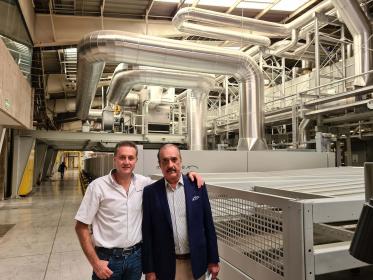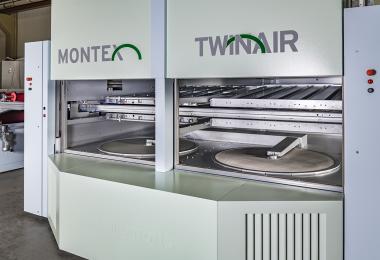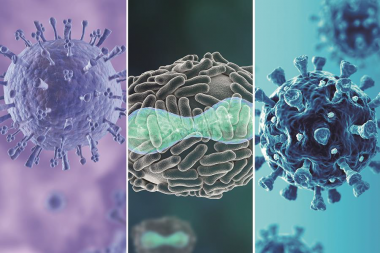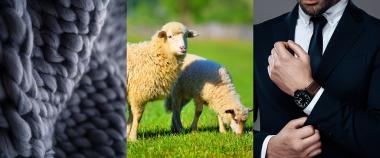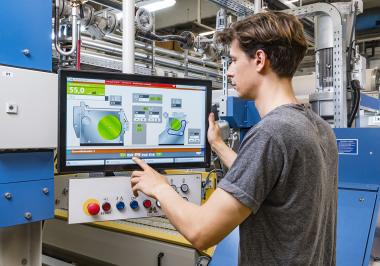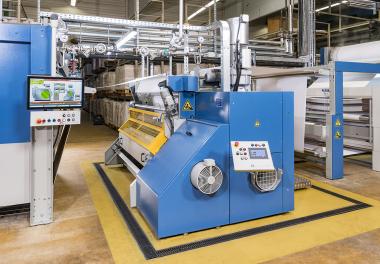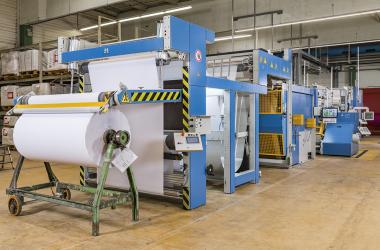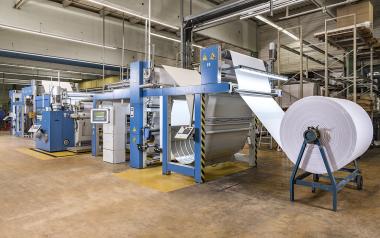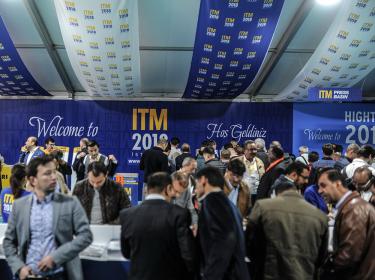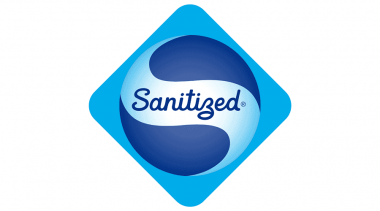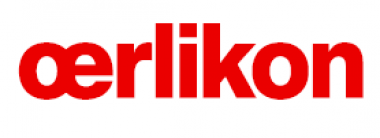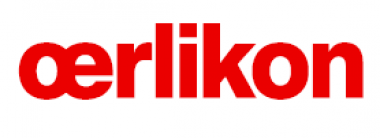Recycling becomes a focus
Mountains of waste, plastic-infested oceans, negative CO2 footprints – the need for more sustainable ways of living has never been more urgent. Consequently, it is logical that recycling solutions are becoming increasingly important within the textile industry. This was also tapped into at the first virtual Global Fiber Congress in Dornbirn with a session that focused specifically on the topic. In front of around 400 participants, Markus Reichwein, Head of Product Management at Oerlikon Barmag, also spoke about solutions currently on the market.
As one of only manufactureres, the Oerlikon Group’s Manmade Fibers segment offers the entire mechanical recycling chain –from preparing the recycled materials, producing the melt all the way through to the textured package. Here, the company utilizes the VacuFil solution supplied by its subsidiary Barmag Brückner Engineering (BBE) –which, in addition to mastering bottle-to-bottle and bottle-to-textile processes, is also able to process textile waste into chips. This permits the running of textile production operations very much in line with the zero-waste philosophy.
VacuFil ensures a stable process in the case of recycled quality yarns
The reliable removal of contaminants is vital for a stable and efficient spinning process and outstanding yarn quality. At the same time, stable operating conditions with minimal fluctuations are essential. The greatest challenge here is the differing qualities of the bottle flakes fed into the system, as the extrusion process is barely able to balance these fluctuations. Here, the VacuFil concept counters with blending silos, which reduce the differences in the viscosity of the polymers considerably and guarantee high yarn and fabric quality.
The VacuFil concept is installed upstream to an Oerlikon Barmag POY system, which transforms the recycled melt into filament yarn of the accustomed high quality. As texturing solutions, Oerlikon Barmag offers its state-of-the-art automatic eAFK-series systems, including the latest generation of the eAFK Evo, which was unveiled at the ITMA Barcelona last year. Yarn manufacturers wishing to continue texturing manually can use the eFK series.
With the VarioFil R+, producers of smaller batches now also have a compact system with an integrated recycled materials preparation unit at their disposal. The system offers a special extrusion system for bottle flake materials, the very latest metering and mixing technology for spin-dying and expanded 2-stage melt filtration. The four spinning positions are each equipped with an Oerlikon Barmag 10-end WINGS POY winder.
While mechanical recycling has already been extensively developed, chemical recycling for mixed fabrics is still presenting the textile industry with huge challenges. The Oerlikon Group’s Manmade Fibers segment is currently working on solutions and concepts for transforming these fabrics into new textiles.
Oerlikon












